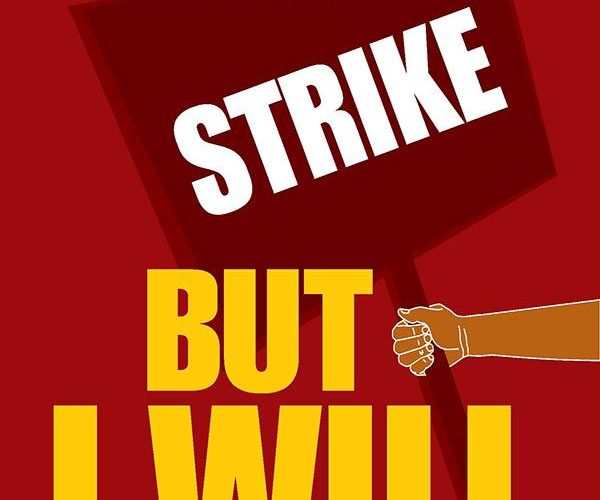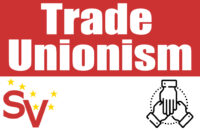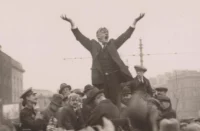The Industrial Relations Act (1990) was introduced on 18 July 1990, replacing the Trade Disputes Act (1906), the main principle of which was that anything done in a trade dispute, provided it was not illegal in itself, would be free from criminal and civil liability.
The 1990 act was introduced as a control mechanism on trade unions. It was a response to equivalent legislation being introduced in Britain because of increasing levels of industrial unrest and strikes, as dissatisfaction rose during the 1970s and 80s when the post-war gains made by workers under social democracy were slashed. Unions were being softened as they became cosy with the state under “social partnership,” and allowed it to be introduced with a minimum of fuss.
Among some unions there were serious issues with many parts of the act, covering political strikes, secondary pickets, individual workers’ rights, and the change in requirements covering strike ballots; but the act was passed and accepted. Reassurances and guarantees were given by the then minister for labour, Bertie Ahern (a former union official), who was regarded as a friend and sympathetic to workers’ rights. This has not proved to be the case, as his guarantees have proved to be about as reliable as his memory over his financial affairs.
The act introduced many changes to the accepted norms of industrial relations up to that time.
The definition of a worker was very loose and left self-employed and contract workers vulnerable, with the “gig economy” and bogus self-employment on the rise. This is something that has huge implications today.
In single-worker disputes the individual worker is very vulnerable, as all agreed procedures must be exhausted before action is taken. So the issue has to be dealt with first by a rights commissioner, the Workplace Relations Commission and the Labour Relations Commission before collective action is taken. This could take months, if not years; and there will be no guarantee of reinstatement at the end.
This leads to individual workers being at a huge disadvantage, which strikes at the very heart of the trade union principle of “an injury to one is an injury to all.”
Political strikes are banned. This would rule out tax marches. It would rule illegal the strike by the ten brave workers in Dunne’s Stores who stood up to the South African apartheid regime by not handling South African goods in 1984. (Even Ben Dunne has said of this strike that, on reflection, you cannot defend the indefensible.) It rules out a similar action against Israeli products today.
The CIE companies are very vulnerable in this regard, as during the dispute in 2015 over the selling off of 10 per cent of the service to private operators the implication by the Government was that this was deemed a political issue. With more of this coming down the line in the three CIE companies, it is an industrial minefield. It will also have huge implications for the ESB and all state-sector workers as the spectre of privatisation hovers over Ireland.
Secondary picketing and support strikes are also banned. During the Bus Éireann dispute recently it was the secondary picketing on Dublin Bus and Irish Rail depots that eventually forced the company to the negotiating table; but this was illegal and could have been very expensive for the trade unions involved.
A secret ballot of all members must be carried out before a strike can take place, and seven days’ notice must be given to the employer involved. The executive of the union has the final say on whether a strike is to go ahead in the case of a majority vote in favour, but there is no similar authority where a minority vote for strike.
Some industrial disputes require immediate action and can’t wait for the seven days’ notice required. This could happen in the case of a health and safety issue, when immediate action might be needed in the interests of workers’ safety. The recent situation with Clery’s department store required immediate action, but this was not available to the workers in question.
Sit-ins are also illegal.
These are all weapons whose use (or even the threat of their use) workers no longer have available to them. This weakens workers’ power and strengthens employers.
Judicial interpretation of what is a strike and what is a legal ballot or dispute are the essence of the 1990 act. The possibilities for litigation are endless. The decision is put in the hands of the judiciary, who have never been friends of workers. Strikes and industrial action can be delayed for weeks, which allows employers to take action to lessen the effect of the strike.
There is a willingness and an ability by employers to sue unions and officials for loss of income caused by industrial action, which has been made possible under the 1990 act. Under the 1906 act this was not possible, as unions were deemed exempt from such action. This is a huge weakening of the labour movement.
Trade unions act to promote values of social solidarity and to provide a check on the socially corrosive effects of the markets and individualism. The 1990 act is the worst dilution of workers’ rights in the history of this state. It facilities employers and gives them the power to question how ballots are carried out. A ballot was purely an internal matter for a trade union, but not according to the 1990 act.
In a survey in 1997 of union officials, 73 per cent said that the 1990 act was a mistake that should not have been accepted in its present form.
With pay and conditions under attack, rising inequality, and poverty at crisis levels, for workers to defend themselves in this neo-liberal climate we need to repeal the 1990 act and to strengthen workers’ power, and bring a bit of pride and solidarity back among workers if the trade union movement is to survive.
People in struggle gain class-consciousness from that struggle. It’s time for the trade union movement to fight back against the class war being waged against us. To do this we need to tip the balance of power from capital to labour. The first step is to repeal the 1990 act, and the equivalent anti-union legislation in the North.
Unions must become radical or become redundant.






